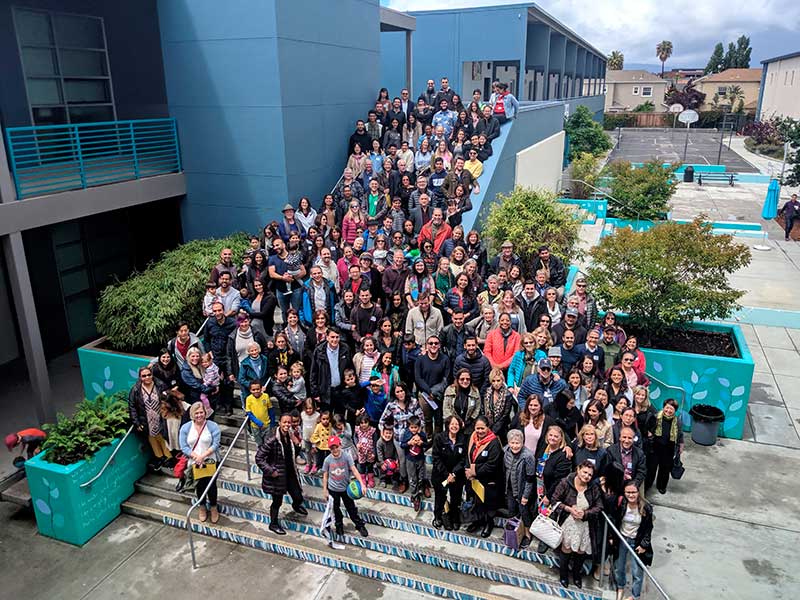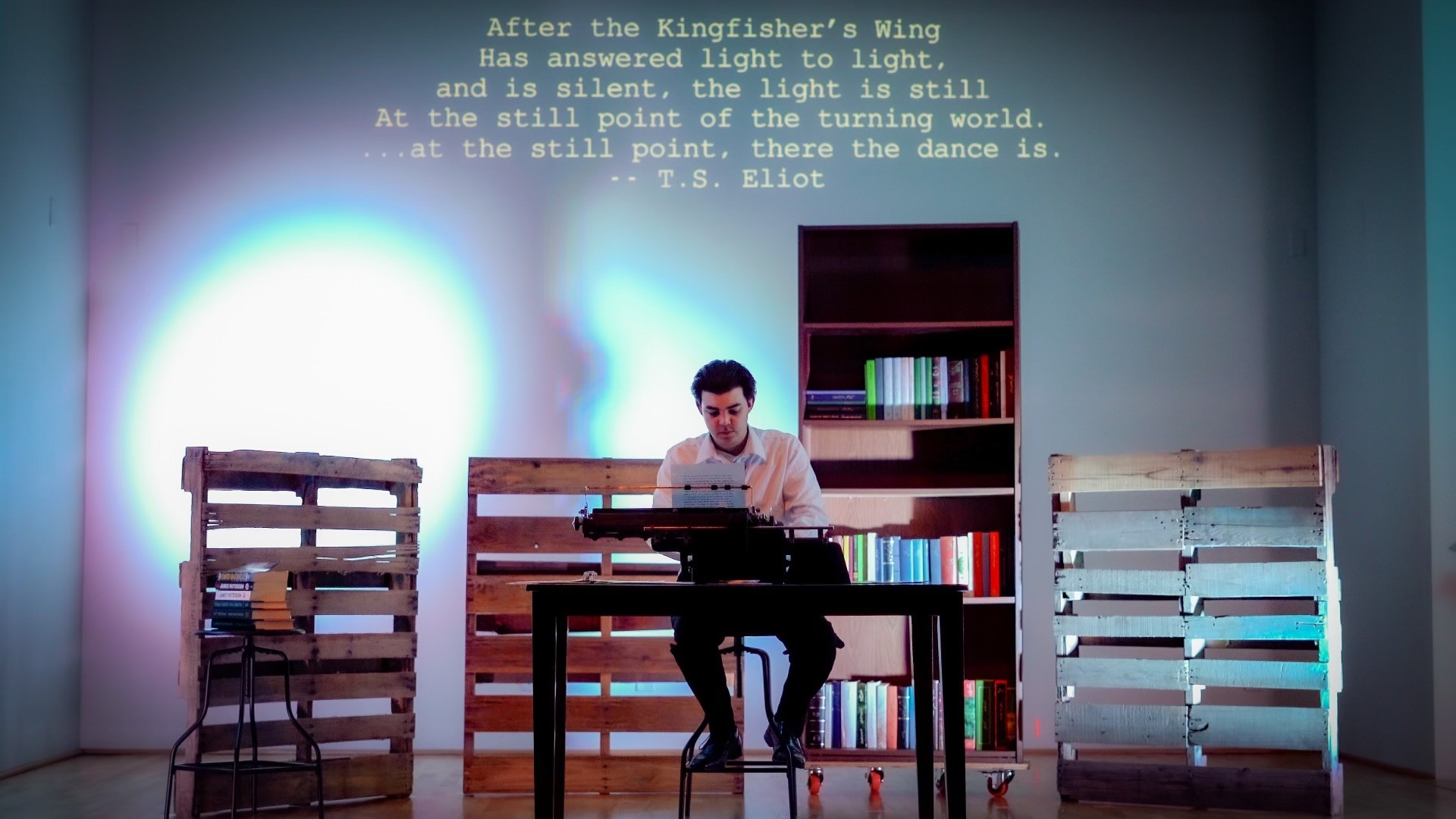
Teens mentor fellow teens, who mentor kids in turn in NC
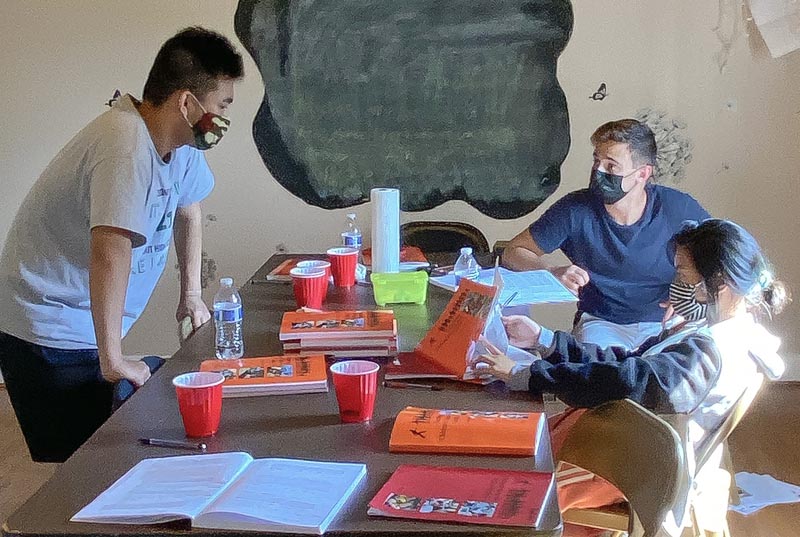
“As a youth, it’s very impactful to be able to feel that you’re doing something good,” says Issa Masumbuko, a high school student in Durham, North Carolina. “It’s kind of like we’re being held back by society, but when we’re given the opportunity to contribute, we start to see our importance in the world.”
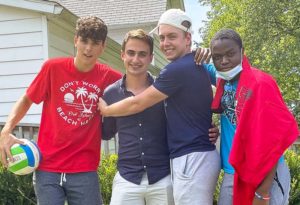
Masumbuko served on a team of youth over the summer that worked to involve peers from the wider community in the core Baha’i activities — in particular, preparing them to start children’s spiritual education classes.
The team focused on Chapel Hill and Carrboro (Chapelboro), adjacent cities in North Carolina. Nabil Kalantar, a college student and longtime area resident, explains that they thought of Chapelboro as a single neighborhood and its more than 80,000 residents as neighbors.
Chapelboro’s diverse population includes immigrants hailing from places such as Myanmar, Syria and Latin America. These populations, especially the Karen ethnic group from Myanmar, have shown interest in community-building activities offered by Baha’is. Yet as the local population surges, rising rent often forces them to move from apartment to apartment. An activity like a junior youth group might start in an apartment complex one year, but by the next, most participants would have moved elsewhere in Chapelboro.
“Thinking of it as a neighborhood helps us with maintaining connections even when the specific location is transitory,” Kalantar explains. That’s why a team of six youth decided to take the entirety of Chapelboro as their focus. Masumbuko and Kalantar, along with Ramsey Breneman and Jaden Soular, formed the team’s core. Carrie Liu and Lili Maani assisted.
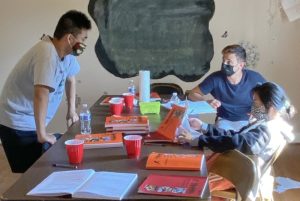
Their project sought to involve teens over their summer break from school. In fact, summer 2021 was an exceptional break for many high school and college students, who now had access to COVID-19 vaccines and the hope of rejuvenating social ties that had been disrupted by the pandemic.
Going door to door, the team invited young people 15 or older to participate in camps focused on studying the first few books of the Ruhi Institute. Breneman, a high school student in Carrboro, recounts that the youths they invited “were either down for it, or were too busy with jobs.” For households with children too young for the camps, “we’d tell them there might soon be a children’s class or junior youth group in the neighborhood,” he says.
And that proved to be the case. The team accompanied seven youths through several training courses, and six of them began teaching three different children’s classes within a few months.
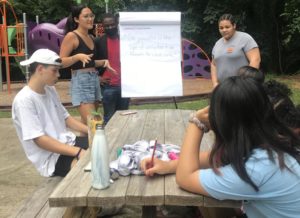
Kyi Kyi Lay, a high schooler and a member of Chapelboro’s Karen community, is teaching one of the children’s classes. Her involvement this summer, she says, yielded “new friendships and also understanding the spiritual and physical world more.” By highlighting the good in this world, community-building activities such as her class are “making the place feel safer,” she reflects.
The team says successes of this kind came from empowering youths such as Kyi Kyi Lay to start taking the lead early on in organizing the children’s classes. In later outreaches, youths who had participated in the first were already encouraging newer recruits by “having them participate in the children’s class, like acting as teachers, meeting families of kids — helping the new ones get connected,” according to Masumbuko.
As the Chapelboro project shows, youth are fully capable of leading, mentoring and teaching, and everyone benefits when they do. Breneman reflects, “Service — it makes you feel like a better person when you serve other people.”


